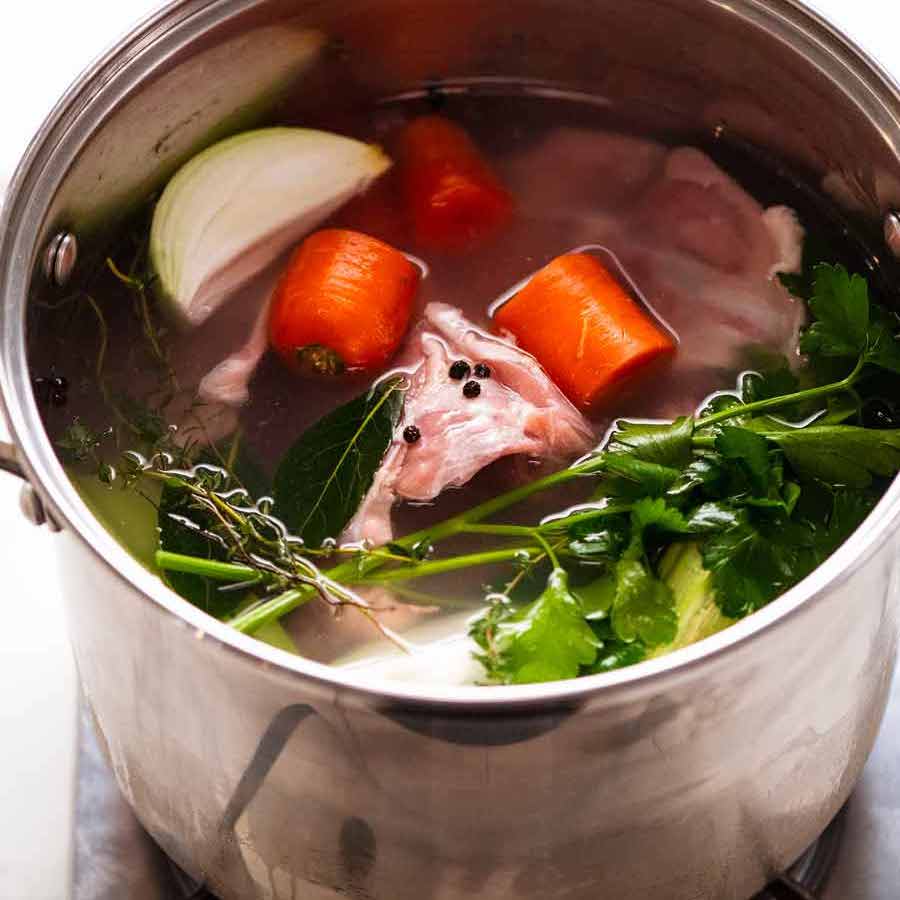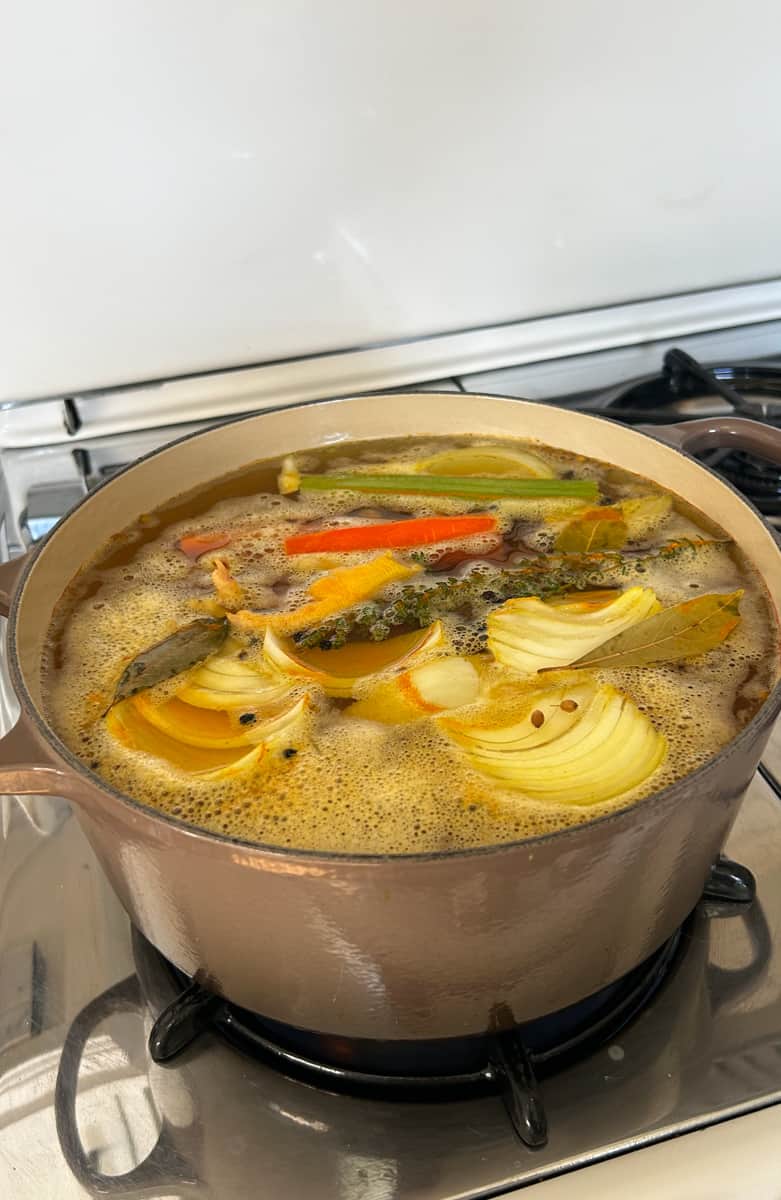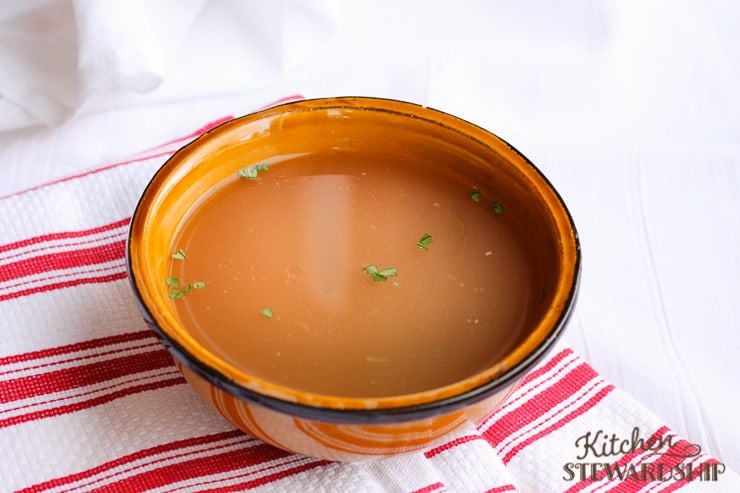Importance Of Chicken Stock In Cooking

Chicken stock is an essential ingredient in countless recipes, serving as the flavorful base for soups, stews, sauces, and more. It adds depth and richness to dishes, enhancing their flavours and creating a savoury foundation. The slow simmering of chicken bones, vegetables, herbs, and spices extracts their essence, resulting in a flavorful liquid that can elevate any dish. Whether making a comforting bowl of chicken noodle soup or adding a touch of richness to your pasta sauce, chicken stock is a must-have in every kitchen.
Versatility Of Chicken Stock In Recipes
Chicken stock is incredibly versatile and can be used in various recipes. Its rich flavor adds depth to soups, stews, and sauces, while its gelatinous texture helps to thicken and enrich dishes. It can also be used as a base for risotto, grain dishes, and braising meats. Additionally, chicken stock can be reduced into a flavorful glaze or used as a cooking liquid for grains like rice or quinoa. With its ability to enhance the flavors of other ingredients, chicken stock is a valuable ingredient in any kitchen.
Nutritional Benefits Of Homemade Chicken Stock
Homemade chicken stock adds flavor to dishes and provides several nutritional benefits. It is rich in essential nutrients such as protein and collagen and minerals like calcium, magnesium, and potassium. Collagen, found in the bones and connective tissue, is used to make stock, supports joint health, and promotes healthy skin. The protein content of chicken stock helps with muscle growth and repair. Additionally, the minerals present in chicken stock contribute to maintaining proper electrolyte balance in the body. Incorporating homemade chicken stock into your recipes can boost the nutritional value of your meals.
Classic Chicken Stock Recipe

A classic chicken stock recipe is a must-have for every kitchen. It is the foundation for countless dishes and adds depth and flavor to soups, stews, gravies, and sauces. Making homemade chicken stock is easy and yields superior results to store-bought options. The recipe typically simmers chicken bones with water, root vegetables, and herbs to infuse the liquid with savory flavors. The result is a clear and flavorful stock that can be used in various recipes.
Ingredients For Homemade Chicken Stock
To make homemade chicken stock, you will need a few key ingredients. The stock base is made from chicken bones, such as leftover carcasses or bones from roasted chicken. Along with the bones, you will need a variety of vegetables like carrots, celery, and onions, which add flavor and depth to the stock. Additionally, herbs and spices like bay leaves, thyme, and peppercorns are added to enhance the overall taste. These simple ingredients create a rich and flavorful homemade chicken stock.
Step-by-step Guide To Making Chicken Stock
Place raw chicken bones or leftover carcasses in a large pot to make homemade chicken stock. Next, chop various vegetables like carrots, celery, and onions and add them to the pot. For added flavor, include herbs and spices such as bay leaves, thyme, and peppercorns. Fill the pot with enough water to cover the ingredients. Bring the mixture to a boil, then reduce the heat and let it simmer for about 2 hours. Afterward, remove the chicken and vegetables from the pot and strain the stock through a fine mesh sieve or cheesecloth. Allow the stock to cool at room temperature for no more than 2 hours before refrigerating it overnight.
Variations And Additions To Chicken Stock

Variations and additions can take homemade chicken stock to the next level of flavor and versatility. You can customize your stock by adding ingredients such as leeks, rosemary, mushrooms, dill, ginger, chili or mild jalapeño, fennel bulb, and cardamom pods. These additions can enhance the taste profile of your stock and provide a unique twist to your recipes. Don’t be afraid to experiment with different herbs, spices, and vegetables to create a customized chicken stock that suits your preferences.
Tips For Enhancing The Flavor Of Chicken Stock
Tips for Enhancing the Flavor of Chicken Stock:
- Roast the chicken bones: Roast them in the oven to enhance their flavor before adding them to the stockpot. This step adds a rich and caramelized taste to your stock.
- Use aromatic vegetables: In addition to carrots, celery, and onions, consider adding other aromatic vegetables like leeks or fennel bulbs to elevate the flavor profile of your stock.
- Add herbs and spices: Experiment with herbs and spices such as rosemary, thyme, bay leaves, or peppercorns to infuse your chicken stock with additional depth.
- Toast dried mushrooms: Adding dried mushrooms like porcini or shiitake can impart a savory umami flavor to your stock. Toast them briefly in a dry pan before including them in the pot.
- Incorporate ginger or garlic: Add grated ginger or minced garlic to your chicken stock for an extra kick of flavor. These ingredients add a subtle warmth and complexity to the broth.
Remember to adjust seasonings as needed throughout the cooking process and taste-test. These simple tips can help you create flavorful homemade chicken stock that will elevate your recipes.
Creative Ways To Use Different Ingredients In Chicken Stock
Creative Ways to Use Different Ingredients in Chicken Stock:
Chicken stock is a versatile ingredient that can elevate the flavor of a wide range of dishes. Here are some creative ideas for using different ingredients in chicken stock:
- Risotto: Use chicken stock to cook creamy and flavorful risotto. The stock adds depth to the dish and enhances the overall taste.
- Sauces and gravies: Incorporate chicken stock into sauces and condiments to enhance their richness and add savory notes. It can be used as a base for pan sauces or to deglaze a skillet after cooking meat.
- Poaching liquid: Instead of plain water, use chicken stock as a poaching liquid for meats, fish, or vegetables. This will infuse them with delicious flavor while keeping them moist and tender.
- Braising liquid: When braising meats, instead of using plain water or wine, try using chicken stock. The flavors from the stock will permeate the meat, resulting in tender, succulent dishes.
- Soups and stews: One of the most common uses for chicken stock is in soups and stews. It provides a warm and comforting base that enhances all the other ingredients.
- Grain dishes: Cooking grains like rice or quinoa in chicken stock instead of water adds more flavor to these simple staples.
- Marinades: Create flavorful marinades by combining chicken stock with herbs, spices, and other seasonings. Let your meat soak up all those delicious flavors before cooking.
- Homemade salad dressings: Use chicken stock as an ingredient in homemade salad dressings to add complexity and depth to your favorite salads.
By thinking outside the box and incorporating different ingredients into your chicken stock-based recipes, you can create unique flavors that impress your family and guests.
Benefits Of Using Homemade Chicken Stock

Using homemade chicken stock offers several benefits that elevate your cooking to the next level. Firstly, homemade stock provides a rich and robust flavor far superior to store-bought options. The depth of flavor adds complexity and enhances the taste of any dish used. Also, homemade chicken stock is more cost-effective than pre-packaged stocks, making it a budget-friendly choice. Lastly, homemade chicken stock allows you to control the ingredients and customize the flavors to suit your preferences, ensuring a healthier and more personalized option for your recipes.
Health Benefits Of Homemade Chicken Stock
Homemade chicken stock offers a range of health benefits that make it a valuable addition to any kitchen. The long-simmering process of chicken bones creates a stock rich in collagen, which is beneficial for skin and nail health. Additionally, chicken stock is known for its gut-healing properties and can help reduce inflammation. By incorporating homemade chicken stock into your recipes, you enhance the taste and provide your body with nourishing and wholesome ingredients.
Cost-effectiveness And Taste Superiority Compared To Store-bought Options
Regarding cost-effectiveness and taste superiority, homemade chicken stock outshines store-bought options. While buying pre-packaged broth may seem convenient, making your chicken stock is more affordable and results in a richer, more flavorful end product. Store-bought broths often contain additives and high sodium levels, compromising the taste and nutritional value. By making your chicken stock, you can control the ingredients and tailor it to your preferences. The extra effort pays off with a superior taste that elevates your dishes.
Storing And Freezing Chicken Stock

Storing and freezing chicken stock is convenient to ensure you always have this essential ingredient. After making your homemade chicken stock, let it cool completely before storing it. You can store it in airtight containers or freezer bags in the refrigerator for 4-5 days. If you want to keep it longer, freezing is the best option. Pour the cooled stock into ice cube trays or freezer-safe containers and freeze until solid. Once frozen, transfer the stock cubes or containers to freezer bags and label them with the date. Frozen chicken stock can be kept for up to 3 months.
Proper Storage Methods For Chicken Stock
Proper storage methods are essential to maintain the freshness and quality of chicken stock. Once you have made your homemade chicken stock, it is important to cool it completely before storing it. You can divide the stock into smaller portions and store them in airtight containers or freezer bags. Label each container with the quantity and date to keep track of freshness. For short-term storage, refrigerate the stock for 4-5 days. If you want to keep it longer, freezing is the best option, and frozen chicken stock can be kept for up to 3 months.
Tips For Freezing Chicken Stock For Later Use
To freeze chicken stock for later use, follow these tips:
- Portion the stock: Divide the stock into smaller portions that you typically use in recipes. This will make thaw only what you need easier without wasting any.
- Use airtight containers or freezer bags: Transfer the stock into airtight containers or freezer bags to prevent freezer burn and maintain freshness.
- Label and date: Clearly label each container with the quantity of stock and the date it was frozen. This will help you keep track of its freshness and ensure you use the oldest stock first.
- Leave headspace for expansion: When filling containers, leave some space at the top for the liquid to expand as it freezes.
- Freeze flat: If using freezer bags, lay them flat in the freezer until they are frozen solid. This will save space and allow for easy stacking.
- Store in the coldest part of the freezer: To maintain optimal freezing temperature, place the containers or bags in the coldest part of your freezer, such as on a bottom shelf or in the back.
Following these tips, you can ensure that your homemade chicken stock remains fresh and flavorful when stored in the freezer until needed.
Conclusion
In conclusion, chicken stock is an essential ingredient in every kitchen. Its versatility in recipes and nutritional benefits make it a must-have for home cooks. Following a classic chicken stock recipe and adding variations and additions, you can create a flavorful base for soups, sauces, and other dishes. Homemade chicken stock offers superior taste and cost-effectiveness compared to store-bought options. Proper storage techniques, including freezing, allow you to enjoy the benefits of homemade chicken stock for extended periods. So why not give it a try? Elevate your cooking with this simple yet powerful ingredient.
Recap Of The Importance Of Chicken Stock In Every Kitchen
Chicken stock is an essential ingredient in every kitchen due to its versatility in recipes and nutritional benefits. It serves as a flavorful base for soups, sauces, and other dishes, enhancing their taste and depth of flavor. Additionally, homemade chicken stock offers superior taste and cost-effectiveness compared to store-bought options. Its health benefits, such as providing essential nutrients and aiding digestion, further highlight its importance. Incorporating chicken stock into your cooking routine can elevate your dishes and add richness to your culinary creations.
Recipe Recap And Final Thoughts
Recipe Recap and Final Thoughts:
In summary, chicken stock is an essential ingredient in every kitchen due to its versatility in recipes and nutritional benefits. Making homemade chicken stock allows you to control the ingredients and create a superior taste to store-bought options. It provides essential nutrients and aids digestion, making it a healthy addition to your cooking routine. Following the classic chicken stock recipe and exploring variations can elevate your dishes and add richness to your culinary creations. Proper storage methods ensure that you always have flavorful stock for future use. Incorporate chicken stock into your repertoire and enjoy the depth of flavor it brings to your meals!
FAQ About Chicken Stock Recipe
Q: What are the benefits of making your chicken stock?
A: Making chicken stock allows you to control the ingredients, flavors, and sodium levels. It is easy, delicious, and versatile for various recipes.
Q: How can I store homemade chicken stock?
A: Homemade chicken stock freezes well in zipper-type freezer bags. This allows for easy portioning and quick access when cooking.
Q: What are the uses of chicken stock in recipes?
A: Chicken stock can be used as a base for soups, gravies, and sauces and as a flavorful, low-fat alternative for cooking vegetables.
Q: Why is homemade chicken stock preferred over store-bought options?
A: Homemade chicken stock provides a richer flavor profile, better control over ingredients, and avoids unnecessary additives or preservatives often found in store-bought versions.
Q: How can I incorporate chicken stock into my daily cooking routine?
A: Use chicken stock as a base for cooking rice, quinoa, or other grains, braising meats, adding depth to sauces, or simply as a flavorful liquid for cooking vegetables and grains.

Andre Lotz immigrated to the United States from South Africa almost 20 years ago. Still, he didn’t feel truly at home until he settled in Mobile—a city that reminds him of his childhood home of Fish Hoek on the southern cape of Africa.






